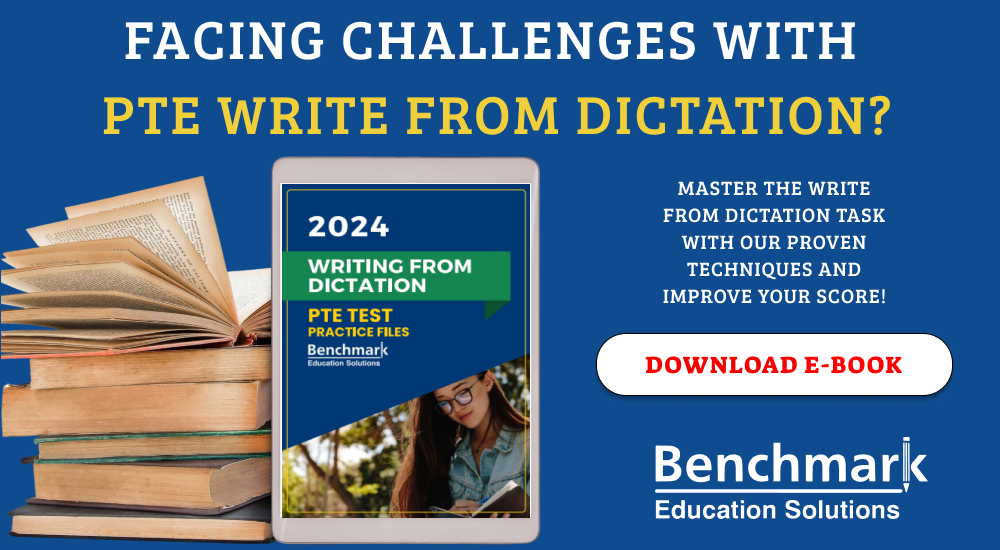PTE listening – 5 Effective & Proven Tips for Write from Dictation Task


You might have heard of the word “dictation” before. It used to be a very important word because in business many things needed to be dictated. Basically, the word means saying something that will be written done, and it is implied that this is done accurately. All around the world, secretaries were responsible for writing down the things that managers dictated to them.
Nowadays, of course, it is less common but it is still an important listening skill. Even if you don’t need to dictate or transcribe, you should still have the ability to do it because that means you have heard and understood every word in a sentence.
1. Understand the question type
When the question says “write from dictation,” it means that the candidate will hear a short passage of spoken English and will need to write down (typing on a computer, of course) what the have heard. This might sound easy… but it can be difficult even for native speakers!
The purpose is to see how much of a sentence you really heard. In previous listening questions, you were tested on understanding main ideas, important details, and specific words. Now, you have the chance to show that you heard and understood most of what was said.
2. Type what you hear
The simplest and most effective way of dealing with this question is the obvious one: just write down the words that you hear in the correct order. If you are not certain of what you heard, you can take a guess. You will be given a point for each of the words that you get right (provided that they are presented in the correct order).
For this, of course, you need decent typing skills as you will need to write down these words quickly and accurately. If you are a slow typist or often spell words incorrectly, you should attempt to address these issues as thoroughly as possible before you consider doing this exam.
3. Use your prior knowledge of English
One thing that you really need to know before doing the PTE listening write from dictation questions is that you can make it ten times easier for yourself if you apply some basic English grammar knowledge.
Let’s say that you hear the following words spoke:
- The second bridge [?] going to [?] built/build in two years.
There are two missing words and one word which is uncertain, so in order to give yourself the best chance of success, you can apply a little grammar wisdom!
What could fill the first blank space? Well, this must be an auxiliary verb as a modal verb could not fit here. In this case, it must be “is.” We can apply a similar logic to the second blank, which has to be “be.” We can see that it is the passive voice. Finally, we can safely assume that the word “build” or “built” must be in its past participle form, so the correct sentence is:
- The second bridge is going to be built in two years.
4. Consider the scoring system
Often, English exams confuse candidates because it is not clear exactly how they are scored. In this case, though it is pretty clear. If you get all the words right (and that means spelling them correctly, too!) then you can achieve the maximum possible score. However, if you make some errors you do not just get zero points… Instead, you will be given a partial score, which will be dependent upon the words that you did get correct.
For this reason, I would strongly recommend that you do some practice with spelling. Obviously, this is a hard thing to practice because it is impossible to know the words you will need to spell. Still, making some big efforts to improve your vocabulary and spelling skills will without a doubt increase your chances of doing well at PTE listening write from dictation.
5. Practice often and intelligently
The best way to practice for this part of the test is to use PTE listening write from dictation practice with answers. However, other methods are also quite helpful. For example, you might like to simply do dictation practice. You can find this sort of exercise online or you can even make your own by listening to audio from the internet and then checking the transcript to see how accurate your guesses were. This can increase your listening, vocabulary, grammar, and spelling skills to a great extent, so it’s a worthy way to spend your free time!






